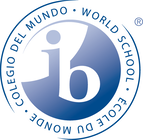|
IB Paper 1 - Prescribed subject 3: The move to global war
This is the source paper, 2 case studies, 4 questions, 1 hour. This prescribed subject focuses on military expansion from 1931 to 1941. The first case study explores Japanese expansionism from 1931 to 1941, and the second case study explores German and Italian expansionism from 1933 to 1940. |
The focus of this prescribed subject is on the causes of expansion, key events, and international responses to that expansion. Discussion of domestic and ideological issues should therefore be considered in terms of the extent to which they contributed to this expansion, for example, economic issues, such as the long-term impact of the Great Depression, should be assessed in terms of their role in shaping more aggressive foreign policy.
See the types of questions with examples that are used in Paper 1.
See the types of questions with examples that are used in Paper 1.
Case studies |
Material for detailed study |
Case study 1 Japanese expansion in East Asia (1931-1941) |
Causes of expansion
|
Case study 2 German and Italian expansion (1933-1940) |
Causes of expansion
|

